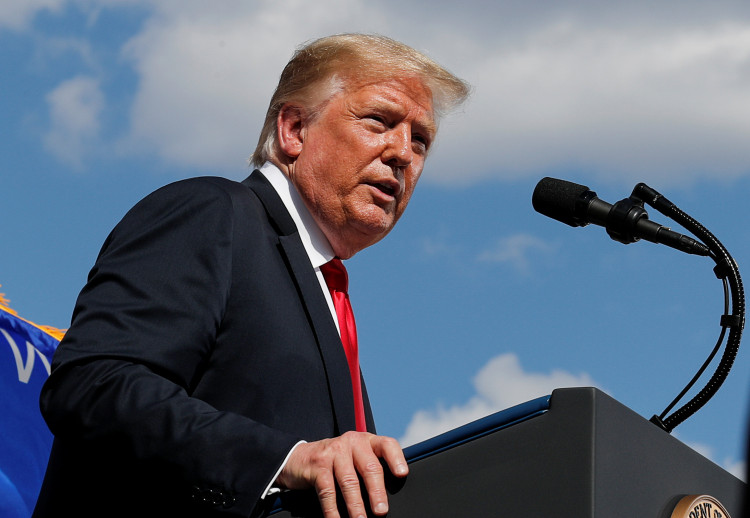Lawyers for former President Donald Trump have filed a motion to dismiss his recent conviction for falsifying business records related to hush money payments, citing a recent Supreme Court ruling on presidential immunity. Trump's legal team argues that the conviction should be thrown out in light of the Supreme Court's decision, which they claim grants broad immunity to former presidents for actions taken while in office.
In May, Trump was convicted in New York on 34 counts of falsifying business records to cover up hush money payments made to adult film star Stormy Daniels, who alleged she had a sexual encounter with Trump. The conviction was a significant legal blow to the former president, who is now seeking to have it overturned.
Trump's attorneys, in their filing with New York Judge Juan Merchan, argue that the Supreme Court's recent ruling that a former president enjoys "absolute immunity" for official acts should apply to Trump's case. They claim that some of the evidence presented by prosecutors during the trial involved actions Trump took while serving as president, and therefore should be protected under the Supreme Court's immunity decision.
"The jury's verdicts must be vacated and the indictment dismissed," Trump's lawyers stated in their court filing. They also contended that introducing evidence from Trump's time in the White House was "deeply prejudicial" and should not have been allowed.
The Supreme Court's ruling, which came from another of Trump's criminal cases, has given the former president a legal avenue to challenge his conviction. The court's decision states that former presidents cannot be prosecuted for many official acts, and that official presidential acts cannot be used as evidence to prove unofficial acts that are allegedly criminal.
The Manhattan prosecutor, Alvin Bragg, has countered Trump's arguments, stating that the Supreme Court ruling does not apply to the hush money case. Bragg asserted that Trump's arguments are "without merit" and that the conviction should stand. Nevertheless, Judge Merchan has postponed Trump's sentencing, originally scheduled for Thursday, to September 18, while he reviews the motion to dismiss.
Trump's lawyers argue that the prosecution's use of evidence from Trump's presidency, including conversations with his communications director and social media posts, should be excluded under the Supreme Court's ruling. They claim that these actions fall within the scope of official presidential duties and should not be subject to legal scrutiny.
"President Trump's Twitter posts fall well within the core authority of the Nation's Chief Executive," wrote Trump's lawyers Todd Blanche and Emil Bove in their brief. They contend that the Supreme Court's immunity decision "forecloses inquiry into those motives" and places the evidence "squarely within the category of official acts committed to the unreviewable discretion of the President."
The Supreme Court ruling has already had a significant impact on Trump's legal strategy, as he seeks to delay or dismiss several criminal cases against him. Trump faces charges in Washington and Georgia related to efforts to overturn the results of the 2020 election, as well as charges in Florida for allegedly endangering national security by retaining classified documents after leaving the White House.
The motion to dismiss the hush money conviction is seen by legal experts as a long shot, but it has already resulted in a delay of Trump's sentencing. The former president continues to use every legal tool available to him to challenge the numerous charges he faces, with the goal of delaying trials until after the November 2024 election.
Trump's legal team is expected to continue arguing that his actions were within the scope of his presidential duties and therefore protected by immunity. As the legal battles unfold, the former president remains a polarizing figure, with his supporters viewing him as a victim of political persecution and his critics seeing him as a leader who repeatedly violated the law.






